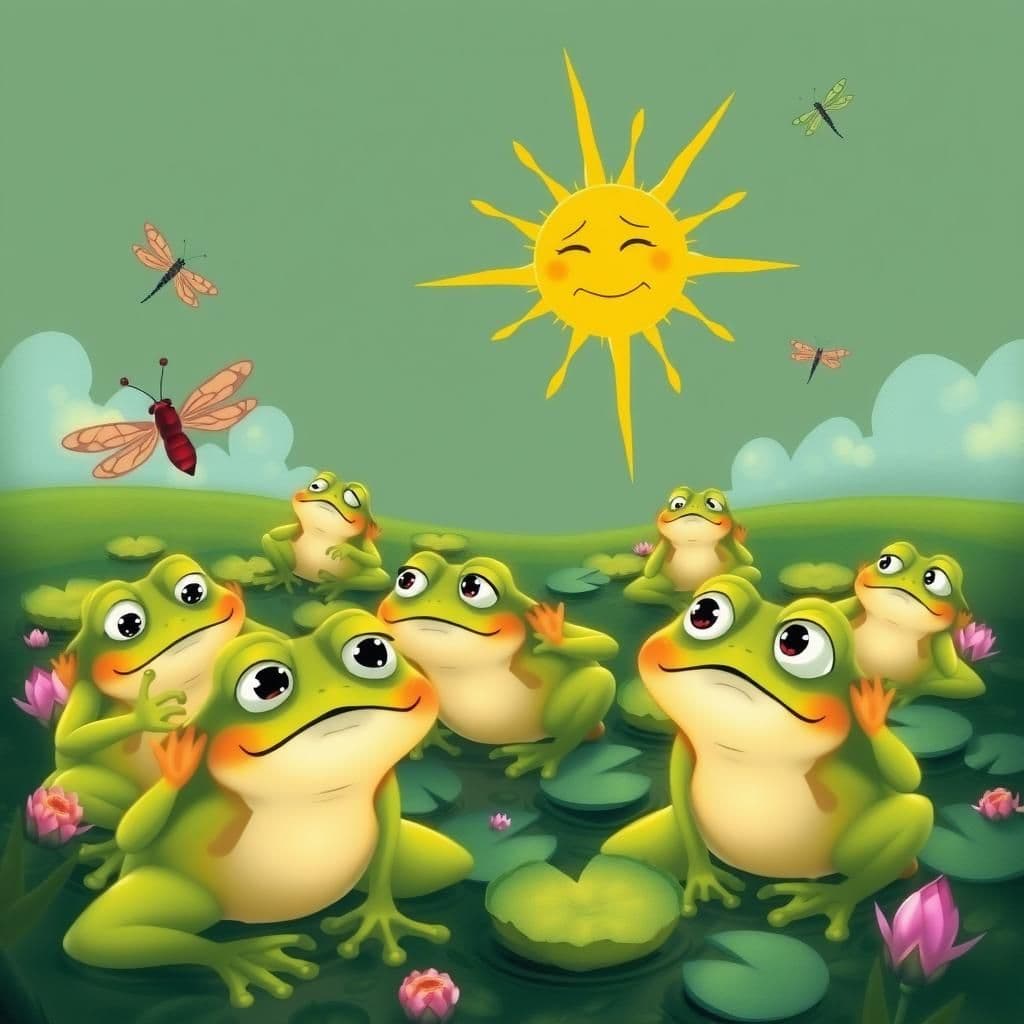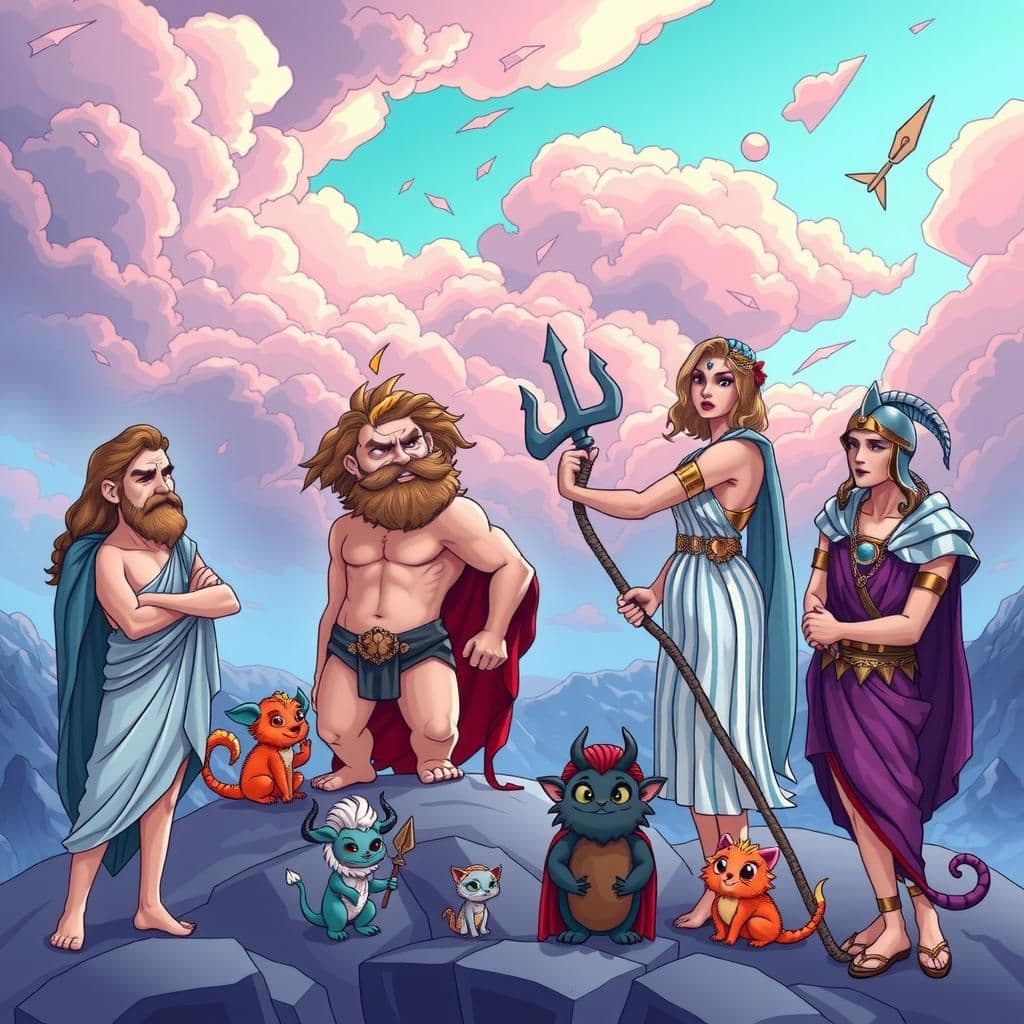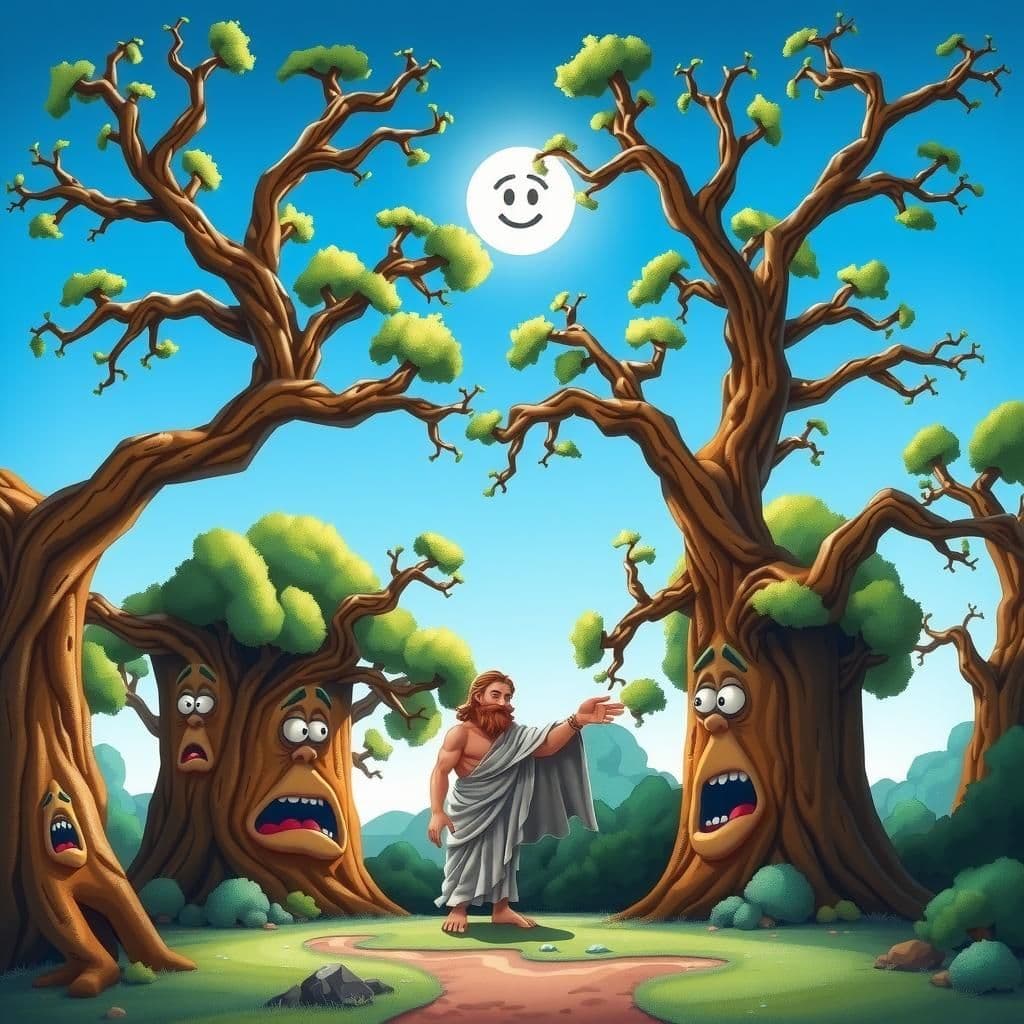The Frogs Complaint Against the Sun

Story Summary
In "The Frogs' Complaint Against the Sun," a classic tale from short story collections with moral lessons, the Frogs voice their fears to Jupiter about the Sun's intention to marry, worried that his future offspring could further dry out their marshy homes. This bedtime moral story highlights the Frogs' plight, emphasizing the importance of considering the consequences of one's actions, making it a valuable addition to childhood stories with moral insights. As they lament their dire situation, the narrative encourages personal growth by reflecting on the potential impact of new beginnings.
Click to reveal the moral of the story
Be careful what you wish for, as it may lead to consequences worse than your current situation.
Historical Context
"The Frogs' Complaint Against the Sun" is a fable attributed to the ancient Greek storyteller Aesop, who lived around the 6th century BCE. This story reflects themes of environmental concern and the consequences of unchecked power, common in Aesop's fables, and has been retold in various forms throughout history, illustrating the anxieties of smaller creatures facing the whims of more powerful forces. It serves as a cautionary tale about the impact of leadership and the importance of voicing concerns against potentially harmful changes.
Our Editors Opinion
In modern life, the story of "The Frogs' Complaint Against the Sun" reminds us that sometimes, the fear of change can lead to unnecessary complaints about potential future consequences, rather than recognizing that change might bring new opportunities. For instance, in a workplace setting, employees might resist a new management strategy out of fear that it will lead to more stress or job loss, while in reality, it could foster a more innovative and supportive environment.
You May Also Like

Jupiter Neptune Minerva and Momus
In an ancient legend, Jupiter, Neptune, and Minerva each create significant entities—man, bull, and house—and dispute over whose creation is the most perfect. They appoint Momus as a judge, but his incessant faultfinding leads to humorous critiques of each creation, prompting Jupiter's indignation and Momus's expulsion from Olympus. This funny story offers an uplifting moral about the pitfalls of constant criticism, making it a delightful addition to bedtime moral stories and simple moral tales.

Jupiter and the Monkey
In "Jupiter and the Monkey," a culturally significant moral story, Jupiter promises a reward for the handsomest offspring in the forest. The Monkey proudly presents her ill-featured son, asserting that he is the most beautiful in her eyes, despite the laughter of others. This short and sweet moral story teaches kids that a mother's love transcends appearances, highlighting simple lessons from stories about self-acceptance and inner beauty.

The Oaks and Jupiter
In "The Oaks and Jupiter," a classic moral story, the oaks lament their constant threat of being cut down, feeling burdened by life. Jupiter responds with a wise lesson, explaining that their own strength and usefulness as pillars for carpenters and farmers make them targets for the axe. This engaging moral tale highlights how our qualities can lead to both advantages and misfortunes, a theme often found in childhood stories with moral lessons.
Other names for this story
Frogs vs. Sun, The Sun's Fiancée Dilemma, Marshland Meltdown, Frogs in Distress, Sun's Marriage Consequences, The Croaking Protest, Jupiter's Dilemma, Frogs Demand Relief
Did You Know?
The story highlights the theme of fear of change and the consequences of power dynamics, as the Frogs lament the potential for increased suffering if the Sun, a powerful force in nature, becomes even more formidable through progeny. Their complaint serves as a metaphor for how those in positions of authority can inadvertently impact the lives of the vulnerable.
Subscribe to Daily Stories
Get a new moral story in your inbox every day.